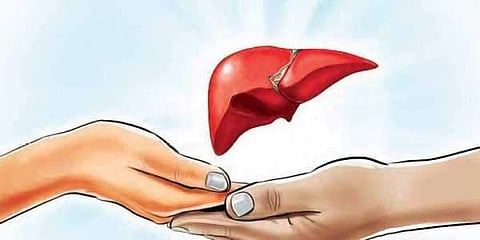

THIRUVANANTHAPURAM: To bring in more transparency to the cadaver or deceased organ donation drive in the state, the Health Department is planning to dissuade the practice of hospitals seeking consent directly from the family of a brain-dead patient.
As per the plan, the department is considering to use the service of either transplant coordinators or the proposed transplant procurement managers (TPM) for the same. It is also giving a final shape to its proposal of delinking brain-death certification from organ donation.
“The rate of deceased organ donors is at an all-time low in the state,” said a Health Department officer. “The reason is the misapprehension existing in the society regarding brain-death certification and organ donation. The proposed moves might help dispel such misconceptions.”
Corroborating the same, IMA state secretary Dr N Sulphi said: “The cadaver organ donation is almost at a standstill.”
According to IMA state secretary Dr N Sulphi, the cumbersome procedures for brain-death certification and misbeliefs among people have indeed made the private hospitals reluctant.
As per statistics, the cadaver organ donation in 2015 and 2016 was at 218 and 199 respectively. But it nosedived to 60 in 2017 and 22 in 2018.
Kerala Network for Organ Sharing (KNOS) state nodal officer Dr Noble Gracious said that due to misconceptions among people, live donors were more in number than cadaver donors. The hostile attitude of people towards brain-death certification is the main reason behind the drop in cadaver organ donation.
"In developed countries, it's just the opposite. There, organs are sourced mainly from cadavers who are declared brain-dead. They've the well-placed system of clinical lead for organ donation and specialist nurses-organ donation. We lack such a system. The proposed TPM could become a game-changing concept. Though it'll first come at the state-run medical colleges, we'll ask the private hospitals to set up a similar mechanism," said Noble.
The TPM's aim is to delink the nexus between transplant professionals and those who certify brain death. It is learnt the transplant professional will only come to know about the potential donor after the brain-death certification and consent.
Noble said that by bringing brain-death certification mandatory at the ICUs irrespective of organ donation several issues could be addressed. "The problem is that we equate brain-death certification with organ donation. This is not a desirable practice. Once a person is declared brain dead, the family can either take the decision of suspending the life-support system or organ donation," said Noble.
New committee
In October, in order to to explore the practicality of making brain-death certification mandatory, a five-member committee including the State Attorney was appointed by the Health Department.